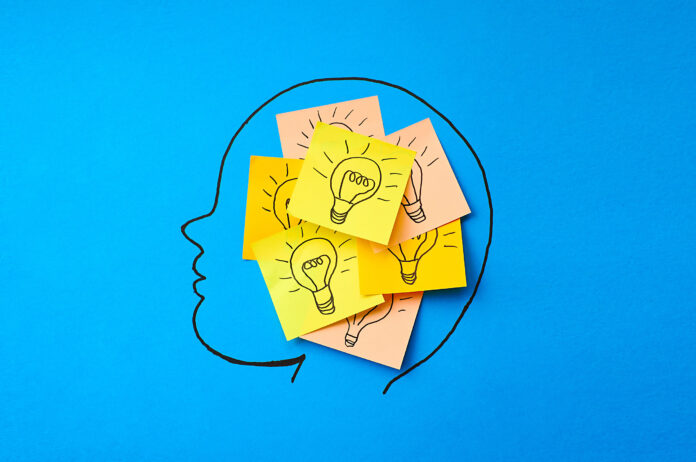
When you’re a student or someone who has just picked up learning, you face plenty of challenges, such as absorbing new information and letting it sediment. There’s so much to grasp and recall that it can be demoralizing to forget basic or complex information when you need it, such as during an exam, interview, or online quiz.
If you’ve ever wondered how to effectively, easily, and quickly improve your capacity to memorize and recall things, then you’re in the right place. Millions of methods are stipulated over the internet, but only some are genuinely useful and capable of giving results, so let’s assess today’s methods of improving memory power efficiently so you can leverage the benefits lifelong.
Brush up on already-encountered knowledge

Feeling rusty and in the impossibility of accessing and using some information you’re sure you’ve grasped a long time ago? This phenomenon happens by default, and there’s science to back up the reasons behind the quick forgetting of stuff learned long ago. For instance, the neural circuitry related to bygone memories becomes rewired and more difficult to approach and recover as time passes, resulting in the forgetting process as we know it.
Regarding how memory fades, you can look into Ebbinghaus’s Forgetting Curve and gain knowledge in the area. And if solutions to bringing to mind long-forgotten but essential information are what you’re seeking, then you’re advised to take the matter into your own hands and reach practical solutions.
Chemistry is one of the school subjects that helps everyone understand and use concepts in life. Yet, just like many other school topics, notions once learned in class get forgotten easily. In situations like these, getting and grasping the “bigger picture” regarding long-unreviewed concepts is the best thing you can do to brush up on old information and retrain your memory to recall further data related to any other topics that may cross your mind.
Because people recognize the importance of recalling past info and regaining insights into the world’s functioning, they’re increasingly resorting to today’s chemistry courses and refresher programs where professional and meticulously researched approaches are used to facilitate the process of teaching and learning. Grasp the “bigger picture” regarding long-unreviewed concepts and brush up on long-forgotten or improperly stored info to fine-tune your learning and memorizing skills regardless of the niche you’re looking into.
Get your Zs right
There’s a colossal discrepancy between the amount of sleep you require to work at your best and the amount that helps you make it through the day. On one hand, adults need between seven to nine hours of rest per night to prevent sleep deprivation and the associated problems. Plenty of old-to-modern scientific research demonstrates that anything less, such as five to seven hours of nighttime sleep, can lead to hypertension, diabetes, kidney disease, multimorbidity, and other health issues, putting the heart and other organs and functions at risk. Sleep is thus essential to brain detoxification and memory consolidation, with studies discovering that a lengthy nighttime sleep decreases the risk of memory disease significantly and quickly.
On the other hand, lack of sleep leads to cognitive issues, memory loss, or difficulty in storing and recalling info. You’ll see improvements in your cognitive and memory functions as soon as you regulate and stick to a healthy sleeping pattern, so prioritize your Zs and rank this among the highest priorities regardless of how much you need to improve your brain activity.
Try mnemonic devices

Are you the type who can recall song lyrics after years of not having accessed them but finds it impossible to bring some newly acquired information to mind? Then, discovering the power of mnemonic devices could be the solution you were looking for.
Mnemonic devices, based on imaginative vignettes that reinvent info and are exemplified by visualization techniques, chunking, acronyms, and other means, reinforce associations between already-stored and new data in your memory. Furthermore, making a habit out of revisiting and reviewing data that has been sedimented in your brain can fortify these connections in time. You could link a term you must learn with something ordinary to make it easier to recall. It could involve anything from a joke, a song, or rhyming to assist in bringing it back to memory. Afterward, your brain will have made this remembrance technique an automatism or a great ally to use lifelong.
Associate fresh info with the knowledge you already own
Reading something unfamiliar to you can make the information more complicated to process and store. The explanation is relatively easy to understand – your neural pathways necessitate time to scan the info and accumulate it to use later when needed. Furthermore, your brain uses four distinct memory types: sensory, short-term, working, and long-term. If the data isn’t saved correctly, it can quickly escape your working memory and thus have your brain do away with it. This is why you may sometimes read a text to ask yourself afterward, “What have I just discovered?”.
Now that you know why some info doesn’t seem to stick with you, you can try the reverse method and connect that fresh data and previously stored information. For instance, you can associate newly learned foreign words with some you already know to improve the chances of recalling the newcomers in your vocabulary. In the long term, you’ll habitually conduct such associations and get better at accessing isolated info that seems out of reach right now.

Arrange learning into groups
It’s been demonstrated that when info is grouped and labeled accordingly, it helps the brain process and store it for later use. This method best shows how the brain analyses and behaves with newly encountered information.
When studying, divide materials into groups, like combining matching data or separating info based on the concepts and topics learned. You’ll find it easier to pinpoint the exact data you need and guide your memory on the right path so you’re not spending unnecessary time stressing your brain out to access some well-rooted and regularly used information.
Do you know any tried-and-tested or widespread methods of boosting your memory? Or is there any other technique that has caught your interest lately?








